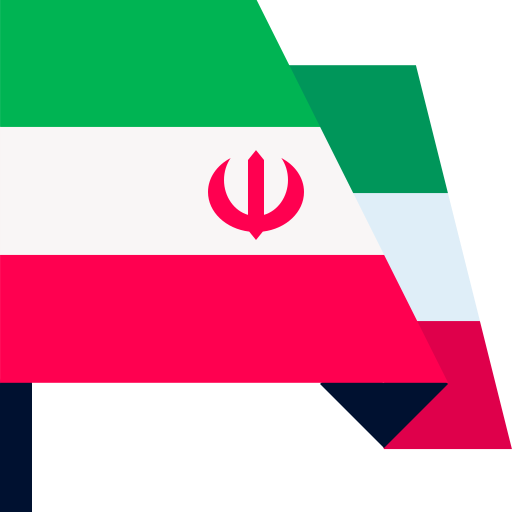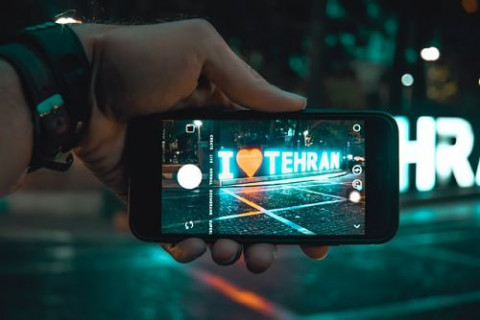Etiquette Tips for Doing Business in Iran
Having received great feedback on my blog about the place of "tarof" in Persian culture, a few people have requested a brief guide to doing business in Iran for companies making the journey over.
So here goes....
I'm going to give you some quick tips around etiquette, covering:
- Business etiquette
- Meeting & greeting
- What to wear
- Business meetings
- Negotiations
Business Etiquette in Iran
Recent changes and moves in the international political scene are slowly dragging Iran out of its status as a pariah state. Tentative business partnerships are being formed mainly in the energy, infrastructure and medical sectors; plenty more will soon follow.
Images and stereotypes of Iranian society and people unfortunately cloud the great colour, warmth and hospitality of this ancient people that makes doing business in Iran such a fascinating and fun experience.
Doing business in Iran requires gaining some objective understanding of the people, culture, etiquette and approach to business. By acquiring such cross cultural skills, international business people can greatly enhance their business experiences in Iran.
These few tips on business culture and etiquette are in no way meant to represent a comprehensive summary covering all aspects of doing business in Iran but concentrate more on cross cultural pointers to help minimise misunderstandings and poor communication.
Meeting and Greeting Etiquette
When meeting someone in a business or official context always shake hands. As a male you should wait to see if women extend their hands, if they do not, then simply nod your head and smile. Placing your hand on your heart is a nice touch.
The most common greeting in Iran is 'salam' which originates from the Islamic greeting 'Asalamu alaykum' (peace be upon you). One would also reply with 'salam'.
When departing, Iranians will generally usually use, 'khoda-hafez' (may God preserve you).
When doing business in Iran, stick to formalities. Once a relationship has been established your Iranian counterpart will quickly start to address you with your first name.
Men are addressed with 'agha' proceeded by the surname. So, Alan Jones will be 'Agha-ye Jones'. With women you would use 'khanoom'. So, Samantha Jones will be 'khanoom-e Jones'. Professionals with titles will be addressed similarly, for example, 'Doctor-e Jones'.
Dress and What to Wear in Iran
When doing business in Iran you will notice that most Iranian officials and business people wear clothing comprising of trousers, shirt and jacket. Many officials will be seen with collarless shirts. Ties are very uncommon.
As a male you would be expected to be smart and conservative. A suit is standard although wearing a tie is not necessary.
Whether doing business in Iran or visiting, women should wear very conservative clothing that covers arms, legs and hair. When in public women must cover their hair with a scarf. However, the last decade has seen incredible changes in what the authorities are willing to tolerate.
Women can now be seen wearing make-up, jeans and scarves that barely cover the hair. However, as a foreigner it is best to err on the side of caution, especially in these politcally sensitive times.

If you're going to Iran on business, then get ready for a lot of tea! Always try and accept offers of tea as it makes people feel happy that they have shown good hospitality.
Photo by abolfazl ranjbar on Unsplash
Business Meetings in Iran
If you plan on doing business in Iran appointments should be made in advance both via telephone and in writing. Prior to arriving in Iran telephone again just to confirm time and place.
Business hours are Saturday to Thursday 9 a.m. - 5 p.m. Lunch is usually an hour at around 1 p.m. Friday is a holiday. No business will take place so either try and avoid it or ensure you can use it to see some of Iran.
There are a few key times to avoid in Iran. No-Rooz is the major holiday for Iranians. Although its roots are in Zoroastrianism, this New Year celebration is an integral part of Iranian culture. All offices, businesses, shops, etc will close for 2-3 weeks.
Other times to avoid doing business are Ramazan (the month of fasting), Eid-e Fetr (festival celebrating the end of Ramazan), Eid-e Ghurban (celebrating the end of the pilgrimage) and Ashura (the tenth day of Muharram).
Punctuality in Iran is rare. However, it will be expected of you. If you are doing business with government officials in Iran be prepared to be kept waiting. The administration and bureaucracy in Iran can be chaotic, meaning that officials may need to address an important issue before seeing you. Be patient and courteous. If you like tea, do not be afraid to ask for lots of it!
Although many Iranians in business and in the higher levels of government will have a good understanding of English, it is best to arrange for your own interpreter to accompany you.
At the beginning of any meeting engage in niceties and ask after people's health, families, work, etc. Wait for your counterpart to initiate the change in conversation to business matters.
Negotiations in Iran
Before doing business in Iran appreciate this: Your success is defined by your aptitude to build effective personal relationships combined with a clearly outlined and well presented proposal.
Business is personal in Iran. Many businesses are family owned and run. Even within government, officials usually work within networks of friends and associates. If you have influential friends in Iran, do not be afraid to call in favours. Just be prepared to re-pay them in the future. This is all part of doing business in Iran.
Building a relationship with your Iranian counterpart(s) is critical. The first meeting should be solely focused on getting to know each other. Once a relationship has been established you can safely move on to business matters.
Iranians are astute business people. They enjoy haggling and getting concessions so be prepared for long negotiations.
Decision making can be slow. It is most likely that you will meet and negotiate with less senior members of a family or state department first. Once you are seen as trustworthy you will then move on to meet more senior members.
Implementing decisions are just as slow. Iran's red tape and layered bureaucracy means a lot of waiting. Applying pressure in a non-confrontational way can help speed matters up although the most effective way to do so is to use people of influence to help you.
These above examples point to a few considerations one must make before doing business in Iran. By demonstrating an understanding of Iranian culture and etiquette you maximise the potential of your business venture.

Want to learn more about Iran?
Take a look at our Country Guide to Iran or if you are doing business with Iran, then take a look at our Iran Online Cultural Awareness Course.
Photo by Mohsen Rezaei on Unsplash
By accepting you will be accessing a service provided by a third-party external to https://www.commisceo-global.com/

 +44 0330 027 0207 or +1 (818) 532-6908
+44 0330 027 0207 or +1 (818) 532-6908
